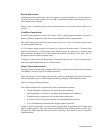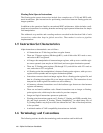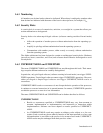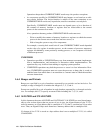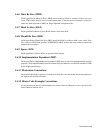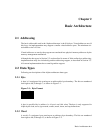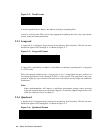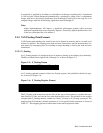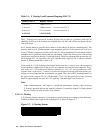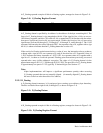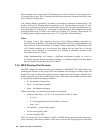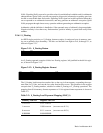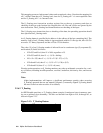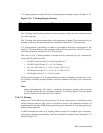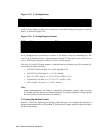
Basic Architecture 2–3
A quadword is specified by its address A, the address of the byte containing bit 0. A quadword
is a 64-bit value. When interpreted arithmetically, a quadword is either a two’s-complement
integer with bits of increasing significance from 0 through 62 and bit 63 as the sign bit, or an
unsigned integer with bits of increasing significance from 0 through 63.
Note:
Alpha implementations will impose a significant performance penalty when accessing
quadword operands that are not naturally aligned. (A naturally aligned quadword has zero
as the low-order three bits of its address.)
2.2.5 VAX Floating-Point Formats
VAX floating-point numbers are stored in one set of formats in memory and in a second set of
formats in registers. The floating-point load and store instructions convert between these for-
mats purely by rearranging bits; no rounding or range-checking is done by the load and store
instructions.
2.2.5.1 F_floating
An F_floating datum is 4 contiguous bytes in memory starting on an arbitrary byte boundary.
The bits are labeled from right to left, 0 through 31, as shown in Figure 2–5 .
Figure 2–5: F_floating Datum
An F_floating operand occupies 64 bits in a floating register, left-justified in the 64-bit regis-
ter, as shown in Figure 2–6.
Figure 2–6: F_floating Register Format
The F_floating load instruction reorders bits on the way in from memory, expands the expo-
nent from 8 to 11 bits, and sets the low-order fraction bits to zero. This produces in the register
an equivalent G_floating number suitable for either F_floating or G_floating operations. The
mapping from 8-bit memory-format exponents to 11-bit register-format exponents is shown in
Table 2–1. This mapping preserves both normal values and exceptional values.
S
Frac. HiFraction Lo :AExp.
60
715
16 14
31
06362
S
52 51 2928
Exp. Fraction 0 :Fx



